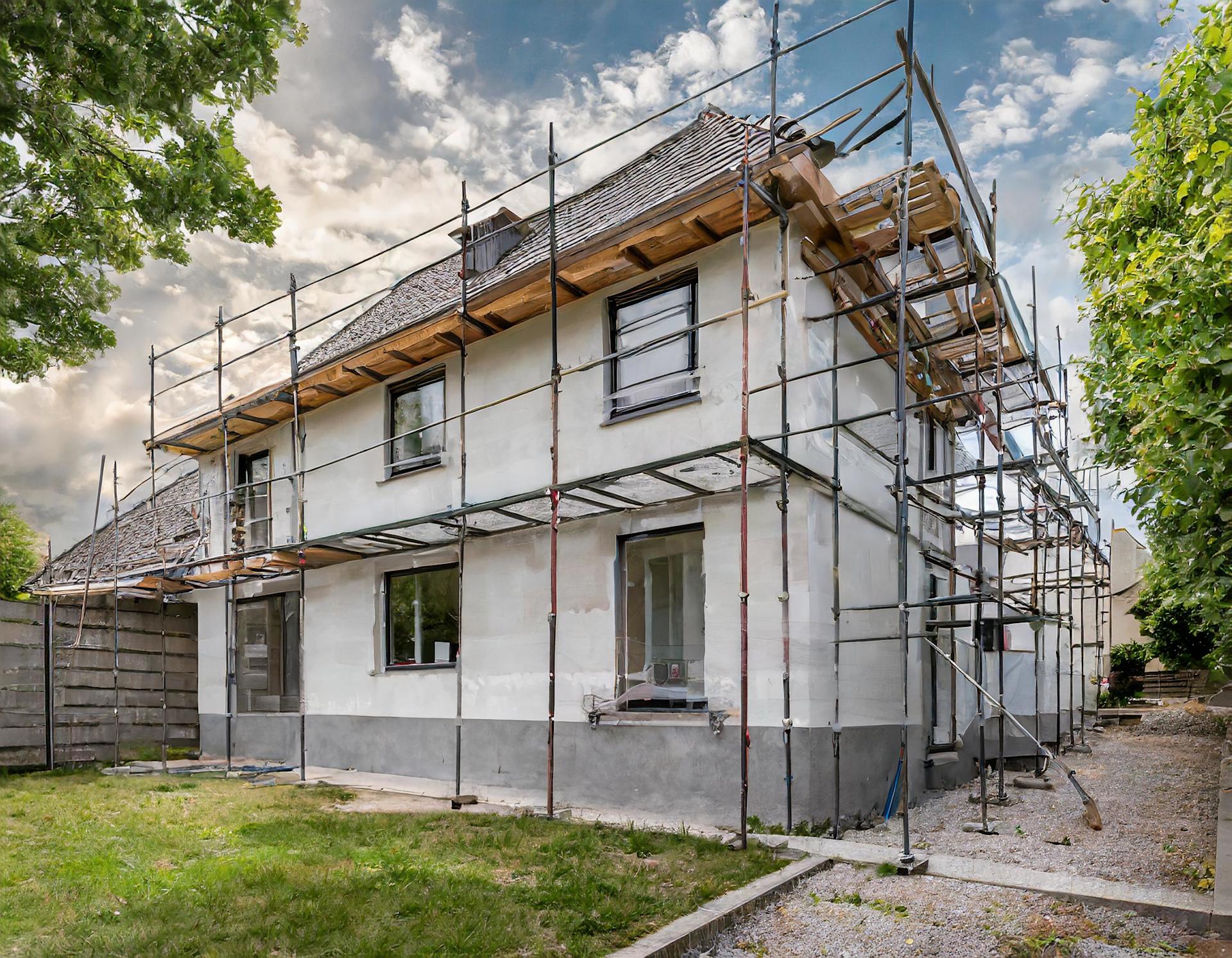

Property law can be confusing, especially terms like "elevation."
This article aims to unpick the concept of elevation law, explain its legal implications, and highlight how it affects property owners, landlords, and tenants in the UK.
Table of Contents
What is elevation?
In property law, elevation refers to the external vertical surfaces of a building including the front (or principal) elevation and the back and sides of the building.
The legal interpretation of elevation was clarified in the case of Triplerose Ltd v. Patel (2018). The Upper Tribunal (Lands Chamber) ruled that elevation means all external vertical surfaces of a building, not just the front.
This decision came about after a dispute where a tenant altered the rear of a building without the landlord's consent, believing the restriction applied only to the front.
The ruling emphasised that unless specified otherwise in legal documents, elevation includes all external sides of the property.
Is there a difference between front elevation and elevation?
Front elevation refers specifically to the front view of a building. This is the side that usually faces the street and includes features like the main entrance, windows, and any architectural details that are designed to be seen from the front.
Elevation, in general, refers to any of the vertical surfaces of a building. This includes the front, sides, and back of the building.
What are the legal implications of altering elevation?
Covenants are rules written into property leases or deeds that restrict how the property can be used. When it comes to altering the elevation of a building, these covenants often include specific restrictions.
Typical covenants related to elevation in property leases might include:
Prohibitions on making any changes to the exterior of the building without the landlord's consent.
Restrictions on adding or removing doors and windows.
Requirements to maintain the building's appearance in a particular way.
If a tenant alters the elevation without permission, they are violating the terms of their lease, which can be considered a breach of contract.
Landlords may seek legal action to restore the property to its original state or to recover damages caused by the unauthorised alterations.
What happens if I alter the elevation without consent?
Planning permission breach
If you alter the elevation without planning permission when required, the local authority may issue an enforcement notice. This notice can demand that you revert the property to its original state or make alterations to comply with planning regulations.
Ignoring this notice is a criminal offence and could result in significant fines.
Building regulations breach
Similar to planning permission, failing to comply with building regulations can lead to enforcement notices.
Persistent non-compliance might result in prosecution, with the possibility of unlimited fines and daily penalties until the issue is resolved.
Lease breach consequences
If you are a leaseholder and your lease requires landlord consent for alterations, making changes without this consent can breach your lease.
The landlord might seek an injunction to stop the work and demand the property be restored to its previous condition.
In severe cases, the landlord could initiate forfeiture proceedings to terminate your lease.
While sometimes you can apply for retrospective consent, this is not guaranteed. If granted, it often comes with conditions or financial penalties. If not granted, you may still need to undo the alterations.
Sale of property
Unauthorised alterations can complicate the sale of your property. Prospective buyers usually require proof of permission for alterations, and without this, you might have to reduce the asking price or face the risk of the sale falling through.
Mortgage issues
Breaching planning permissions or lease terms can affect your mortgage terms. Lenders may take action if the property's value or security is compromised due to unauthorised changes.
If you find yourself in this situation, it’s crucial to seek legal advice immediately.
A property solicitor can help you understand your options, whether it’s applying for retrospective consent or negotiating with your landlord to resolve the issue amicably.
Do I need planning permission to alter the elevation of my property?
In the UK, certain changes to your property can be made without the need for planning permission under what are known as "permitted development rights."
These rights allow you to make specific changes. For example:
You generally do not need planning permission to repair or replace windows and doors if the new ones are similar in appearance to those being replaced;
Minor alterations like small extensions or adding a porch may not need planning permission if they meet specific size and location criteria. For example, porches must be no more than 3 meters high and should not extend more than 3 meters from the door.
However planning permission is necessary if you're making major changes to the building's exterior, such as adding a large extension, installing dormer windows on the front elevation, or making structural changes.
Before starting any work, it's always a good idea to check with your local planning authority. They can provide specific guidance and confirm whether your planned changes require permission.
Get expert help with property law
At Lawhive, our network of property lawyers is on hand to provide expert legal advice on all property matters.
Whether you're planning alterations, dealing with lease agreements, or need guidance on property disputes, we're here to help.
Contact us today for a free case evaluation and quote for the services of a specialist lawyer.